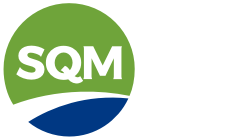Santiago, Chile.
SQM, one of the world's leading world-class lithium producers, based in the Salar de Atacama in Chile, joined the Race To Zero program as part of its Science-Based Targets Initiative (SBTi). ) of the “Business Ambition for 1,5°C” campaign.
As part of the campaign, SQM is committing to the goal of reducing emissions across all its activities in line with the Paris Agreement, with transparent action plans and robust near-term targets
Race To Zero is a United Nations global movement that brings together non-state actors across the global economy to take immediate action to halve global emissions by 2030 and deliver a healthier, fairer zero carbon world in time. The Business Ambition campaign is the world’s largest and fastest-growing group of companies that will seek to limit global warming to 1,5°C and halve global emissions by 2030.
By participating in the Race To Zero, SQM will have to fulfil four requirements:
1. Commit: Pledge to reach (net)-zero as soon as possible and set an interim target for its fair share of 50% reduction by 2030 (Scope 1&2);
2 To plan: Within 24 months of joining, explain what actions will be taken for achieving both interim and longer-term pledges;
3. Proceed: Take immediate, meaningful action consistent with the short- and long-term targets specified;
4. Publish: Report progress annually by publishing against its targets on a public platform.
SQM has already begun exploring its options for making its logistics routes low carbon, by introducing Chile’s first high-tonnage electric truck to be used in large-scale mining onto an 86-kilometer route from the company’s Coya Sur plant in María Elena to the port of Tocopilla. The 90 diesel trucks which currently make this journey cover an estimated 7.500 kilometers per month.
Switching SQM's fleet from 320 diesel trucks to electronic trucks would eliminate approximately 3.840 tons of CO2 per year.
SQM is currently testing the range, capacity and operability of the trucks, which were designed by Enel X.
If the project is successful, the e-trucks will also be introduced onto the Salar de Atacama-Carmen Lithium Chemical Plant route. This is the highest traffic route for the lithium process, with 230 trucks in service.
Ricardo Ramos, CEO of SQM said: “As a company that places the environment at the heart of all our activities, SQM is pleased to be part of the Race To Zero program as we seek to reduce our carbon emissions. While ensuring a reliable supply of high-quality lithium is critical to supporting essential technologies for a decarbonized future, SQM's goal is to lead the industry by example by setting the highest standards for ourselves."
ENDS
About SQM
Based in northern Chile, SQM has provided solutions for human progress for 53 years through its five business lines. Its products are essential for the health, food and technology industries and for the generation of the clean energies that move the world.
SQM was created and is managed based on a culture of excellence, safety, sustainability and integrity. It seeks to position itself as a leader in sustainability to create a "green" brand through continuous efforts to responsibly manage natural resources, care for the environment, form close and trusting relationships with local communities, and create shared social value.
About Race To Zero
Race to Zero is the UN-backed global campaign rallying non-state actors across the global economy to take rigorous and immediate action to halve global emissions by 2030 and deliver a healthier, fairer zero carbon world in time.
All members are committed to the same overarching goal: reducing emissions across all scopes swiftly and fairly in line with the Paris Agreement, with transparent action plans and robust near-term targets.
Led by the High-Level Climate Champions for Climate Action – Nigel Topping and Gonzalo Muñoz – Race To Zero mobilizes actors outside of national governments to join the Climate Ambition Alliance
About Enel X
Enel X is the Enel Group’s global business line offering services that accelerate innovation and drive the energy transition. A global leader in advanced energy solution sector, Enel X manages services such as demand response for around 6 GW of total capacity at global level and 124 MW of storage capacity installed worldwide, as well as around 175.000 public and private electric vehicle charging points made available around the globe.
The first high-tonnage electric truck to operate in Chile’s large-scale mining industry is a 28-ton Yutong ZKH5310ZLJP6BEV with a 422 kWh battery pack.
Enel X and SQM developed a leasing model for the purchase of the electric truck and the installation of a 1 kW charging station that can fully charge the truck’s battery in three hours. The charging infrastructure will be installed at the Coya Sur plant in María Elena, guaranteeing almost 150 kilometers of autonomy.


